It's been a slow period for news in the Duke lacrosse case. The lack of new information has caused many to pause and look backwards. KC Johnson has had three recent posts that deserve particular attention.
“Green Light for Nifong” and
“The Stubbornness of Facts” review Duke’s response to the rape allegations, and
“How Separate But Equal Justice Works” puts that response in context by comparing it to a recent case involving an NCCU student and a drug deal gone bad.
.
Duke’s failure as an institution during the lacrosse case has weighed heavily on me as an alumnus. During this down period, I have reflected on another period in Duke history — the Fall of 1995. I was on Duke’s campus during this time. Some of the comments on the various blogs and message boards indicate some readers were too. For those who weren’t there or don’t remember, there were two brutal rapes within two weeks in September that year. On September 2, 1995, two Duke students — one male and one female — were stopped at gunpoint by two men near an off campus apartment complex. The male student was beaten and left for dead, and the female student was raped twice and then driven to a bank to withdraw money from an ATM. Police apprehended one of the assailants when he was found driving the stolen vehicle and carrying a .357 Magnum and a bag of marijuana. Police later apprehended the second attacker as well.
.
Articles discussing this rape are below:
.
Both assailants pled guilty and were sentenced to long prison terms. I don’t remember any campus protests or Group of 88 faculty ads decrying the rape as a “social disaster.” No campus committees were formed to study how to protect students. No e-mails or letters were sent from the President to students, parents, and alumni. The fact that the assailants were black did not prompt letters about the painful racial history in Durham. The District Attorney didn't issue statements that he wasn’t going to let the image of Durham in the minds of the world be two black men from Durham raping a white girl from Duke.
.
Less than two weeks after the September 2nd rape, on September 13th, three Duke University employees — two males and one female — were stopped at gunpoint by another assailant. The assailant forced the three Duke employees out of view, and bound them with duct tape. The assailant then stripped and raped the female before fleeing the scene.
.
This second rape is particularly tragic because the police initially charged the wrong man with the assault. Police charged then 19-year-old Don Clarke-Pearson, a Duke University Hospital employee, and son of a Duke Medical School professor, with the brutal crime. Clarke-Pearson was a successful cross-country runner in high school, and a student at Boston College. He was taking a course at North Carolina State, while working at Duke Hospital, when the assault occurred. He was spotted in the area by a Duke police officer, and later mistakenly identified by one of the victims as the attacker. During the identification procedure, the police stopped Clarke-Pearson because he fit the description, while one of the victims drove slowly by Clarke-Pearson in order to make an identification. Not only was it dark when the victims were assaulted, but the attacker was wearing a fake beard and mustache. Neither of these facts, nor the fact that the police didn’t find the disguise, or the gun on Clarke-Pearson stopped the police from arresting him and charging him with the brutal crime. The News & Observer ran a sensational story about the charges under the headline, "Once a star, distance runner hits the wall."
.
Nineteen days after Clarke-Pearson was arrested and publicly branded as an acused rapist, DNA tests exonerated him. The police dropped the charges. Unlike the Duke lacrosse case, police arrested Clarke-Pearson immediately after the identification, and Clarke-Pearson was therefore entitled to a probable cause hearing. Before that hearing, police had the DNA tests done, and realized they had the wrong guy. Rather than deny the relevance of DNA, and proceed to the grand jury with the identification alone, the District Attorney at the time called a press conference and dropped the charges. This, of course, contrasts sharply with Nifong’s strategy to avoid the probable cause hearing, and obtain grand jury indictments despite exonerating DNA testing.
.
The police in the Clarke-Pearson case, like those in the Duke lacrosse case, were unapologetic after the DNA exoneration was revealed. Assistant director of Public Safety, Chief Lewis Wardell, said simply:
"At the time of the arrest we had more than sufficient probable cause…We would have been derelict if we hadn't made the arrest."
If a false ID, fake mustache, sensationalized N&O story, negative DNA results, and an unapologetic police officer don’t send chills down your spine, the story’s ultimate tragic ending might. The real assailant on that fateful night, Robert Warren Pratt, was arrested for the crime three and one half years later. Sadly, in 2003, at the age of 27, Don Clarke-Pearson committed suicide. His friends and family said he never got over being the subject of the false charges.
.
.
In researching the specific facts of these two horrible 1995 stories, I came across a column in the Duke Chronicle that was published shortly after the charges against Clarke-Pearson were dropped, and the two suspects in the September 2nd rape were apprehended. On October 5, 1995, Chronicle managing editor Autumn Arnold wrote under the headline “Race dictates our response to alleged crimes, suspects” and made several arguments that are chilling to read today.
After being arrested and charged with three counts of kidnapping, three counts of armed robbery and one count of rape after three University employees were kidnapped and one raped in Duke Forest Sept. 13, Clarke-Pearson was exonerated.
DNA tests showed that samples taken from his body did not match those taken from the rape victim. The results of the tests didn't come as a huge surprise to most people. After all, Clarke-Pearson is the son of a University professor. His family could afford to pay the $175,000 bond for his release from prison. He's a part-time student and a well-liked University employee.
He's white.
Clarke-Pearson's innocence seemed so obvious, in fact, that most people were indignant that he could be charged with so heinous a crime. A glance at the local newspapers indicated the same verdict. Plastered across the front page of the Durham Herald Sun shortly after the arrest was a touching image of Clarke-Pearson hugging his girlfriend. Reporters began asking old classmates, co-workers and Clarke-Pearson's parents about the crime.
The Chronicle was not immune to this; we included a quote from his mother just so our story on the case's evidence would be more balanced. I have yet to hear, however, anyone indignantly defending the innocence of two Durham residents charged in a similar kidnapping, assault and rape case. Markey Wilson, of 417 Lakeland street, was arrested and charged with one count of first-degree rape, two counts of first-degree kidnapping and three counts of armed robbery, after two University students were kidnapped, one beaten and one raped, on Sept. 2. A second suspect, a 15 year-old black man, was arrested shortly thereafter.
For some reason, students standing in line at the C.I. don't throw their bagels to the ground and exclaim, "I can't believe that those guys are in jail!" All three men are innocent before proven guilty. Two of them are black, however, which means that as far as our society is concerned, there is rarely such a thing. The racism at work here is not overt; no one is going to say "clearly, these men are guilty because they are black, and clearly Clarke-Pearson is innocent because he's white."
"Instead, it's a question of who gets privilege. And it doesn't take a quantum physicist to figure out who that is, in this situation and others."
.
Ms. Arnold makes the exact same argument, in 1995, that is consistently thrown in the face of those advocating for the accused lacrosse players today. Those of us banging on our keyboards, pounding the table, and “throwing our bagels to the ground” in defense of Duke lacrosse players are accused of being racist. The fact that the lacrosse players have produced evidence showing their actual innocence is irrelevant. It isn’t a question of guilt or innocence. “It’s a question of who gets privilege.”
The presumption of innocence that applies to all defendants is used to trivialize the actual innocence of those falsely accused. Negative DNA tests are equivalent to being found in the victim’s stolen car with a gun. Furthermore, being falsely charged with a brutal crime isn’t all that bad if you are white and have money to pay for a defense. The lacrosse players haven’t been proven innocent by facts and concrete evidence, they’ve only been shown to be innocent because of their white privilege. Facts simply don’t matter because those making judgments based on those facts must be doing so because of white privilege. As Duke professor Karla Holloway wrote,
"The appropriate presumption of innocence that follows the players, however the legal case is determined, is neither the critical social indicator of the event, nor the final measure of its cultural facts."
While the presumption of innocence is unimportant, the presumption of racism is paramount. Holloway continued,
“innocence and guilt have been assessed through a metric of race and gender. White innocence means black guilt. Men's innocence means women's guilt."
.
This privilege and race language was echoed in the early days after the allegations. On March 28th, Duke Senior Tiana Mack told the Duke Chronicle,
"This is a matter of white privilege..When I read what was going on, it made me think about Jim Crow.... If these three culprits get away with it, it will prove to me that Duke does not honor the black woman's body."
On March 30th sophomore Kristin High told WRAL,
"We understand that the legal system is that you are innocent until proven guilty…But people are nervous and afraid that these people are going to get away with what they did because of a wealthy privilege, or male privilege, or a white privilege."
The Group of 88 ad contained a quote stating:
“I can’t help but think about the different attention given to what has happened from what it would have been if the guys had been not just black but participating in a different sport, like football, something that’s not so upscale”
NCCU students and others similarly hypothesized that white privilege delayed arrests in the lacrosse case. NCCU student Spirit Mitchell told CBS News:
"If it was a Duke student and it was Central's football team, the situation would have been handled totally differently.”
At the NCCU forum after the DNA results were released and Nifong announced that the case wasn’t going away, NCCU senior Tolulope Omokaiye received boisterous applause for making the comment:
"We all know that if this happened at Central and the young lady was from another school or another persuasion the outcome would have been different; they would have been in jail."
The “what if the lacrosse players were black” counterfactual seems absurd now that the facts of the investigation are known. No one was arrested in March because the accuser had not identified the three players as suspects until the April 4th line up, despite the fact that she was given two earlier opportunities to identify her alleged attackers—on March 16th and on March 21st. After the April 4th identification, Nifong didn’t delay arrests because the accused were white. He likely delayed arrests until the first meeting of the grand jury following the April 4th identification, because doing so allowed him to avoid a probable cause hearing, and the consequent requirement to address the weight of the evidence before the primary and general elections.
LS
Sexual assault is not a problem of white against black, or black against white. It is a problem that affects all. NCCU students and other Durham citizens are not the only ones who have been victimized in the past. Duke students have been victimized as well. This, however, should not prevent us from recognizing the painful history of false charges and their tragic consequences.
The Duke lacrosse case, first and foremost, appears to be a story of sloppy police work, and a prosecutor in denial of actual facts. The rush and need to place events into a racial narrative and history lesson on white privilege, simply because black citizens and white citizens are involved, shouldn’t prevent us from comprehending actual facts, and learning from history to avoid the same mistakes in the future. Poor police work and callous indifferent prosecutors are things that affect blacks and whites the same way that sexual assault does. No one should question that false charges have been brought against numerous black Americans. One needs only to look at the profiles on the
Innocence Project website to understand that.
At the same time, blacks are not the only ones who have been victims of false charges. No one should question the absolute tragedy of Don Clarke-Pearson, a young white man who was caught walking in the wrong place at the wrong time. We can only wonder whether "Once a star, distance runner hits the wall” crossed the minds of the News & Observer editors when they ran “Dancer Gives Details of Ordeal,” “Team Has Swaggered for Years,” and “Suspects in Rape Shared Background of Privilege.” We can also only wonder what Autumn Arnold thinks of her column forever preserved in the Chronicle archives minimizing the false charges, and criticizing those who were audacious enough to be indignant over such charges, when the man against whom the charges were brought would later commit suicide after his life was indelibly changed.
When the lacrosse case is over and the overwhelming evidence shows the innocence of the accused, confirming what available evidence shows already, what will current Duke students like Tiana Mack and Kristin High and others who gave similar quotes archived on the internet think? These students include James Zou--who urged his fellow students not to vote against Nifong; Shadee Malaklou—who appears to be thankful for Nifong bringing the charges even if rape did not happen; and most recently, Dan Baum—who lectured his fellow students and Durham citizens in a letter to the Herald-Sun on December 3rd that “It's time we started talking about the lacrosse case in a different, more important way…[because]…there's so little faith in our legal system that whatever happens in court, a substantial portion of our community will leave angry..[and]…a verdict isn’t going to solve anything.” Similar to what Holloway wrote, Baum seemingly argues that there is something more important than the innocence of the accused, and the tragedy of the false charges brought against them. What Baum and the rest of these commentators forget is that facts and history can be ignored or even forgotten, but they cannot be erased. Inappropriate presumptions can be tragic, but they will be ultimately exposed. When the tragedy of the lacrosse case is known by all, their words will stand available for all to see.
Those of us blogging on this case can’t reverse the tragedy for the three accused players and their families. We can, and have, and will continue to make sure this history and these facts are remembered and remain part of the retrospective of Duke and Durham, hopefully for the better in the years to come.
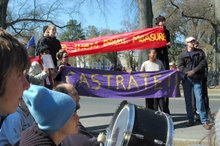




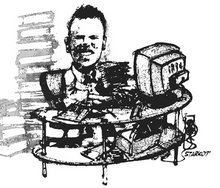

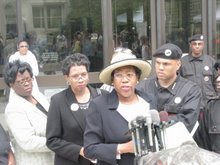
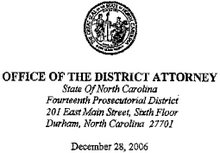
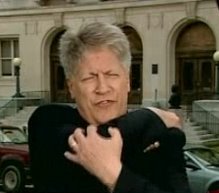

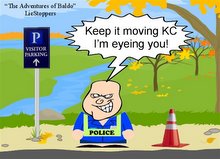

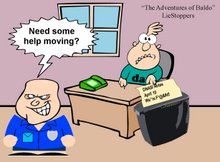

















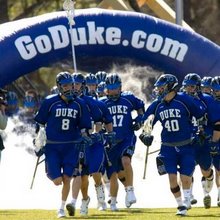



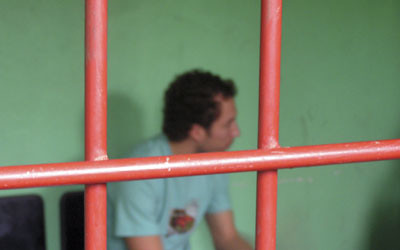



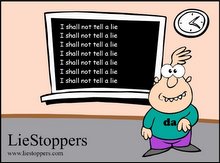






9 comments:
Bravo! Beautifully done. I hope Mr. Nifong, the Durham police officers, the Durham citizenry, President Brodhead, Duke trustees, administration, faculty, and various supporters of the hoax read this. Your piece is so on point and really could make a difference with people who have thus far turned a deaf ear to facts, logic, and argument. This appeals straight to the heart. So well done.
Observer
Thanks for the wonderful analysis. How easy it is for those not following the case closely to get caught up in the "issues" of Durham and Duke, forgetting there are human beings involved whose lives will be forever "indeliably changed." Thanks for the reminder.
Question for the attorneys:
If one or two of the accused players could not afford the bail, would they be sitting in jail for over 1 year while awaiting this trial? /or/ Would this trial be moved along much faster by the judge knowing that one or more of the boys were incarcerated, awaiting this trial?
My point is that because the boys have the means to make bail, are they being treated differently in being denied their right to a speedy trial?
Since Nifong was in the DA's office at the time of the Clarke-Pearson arrest and dismissal, he certainly learned something from it. He learned how to avoid the probable cause hearing. That case was only 10 years old. How could he do this knowing about that case? How could he?
I didn't think my opinion of him could go any lower, but now it has.
That case also demonstrates how a DA is supposed to act. Police makes mistakes. They are supposed to be more suspicious than the rest of us. Maybe they had an honest belief they had the right guy. But when the DNA evidence was presented, the DA dismissed the charges.
I agree with Observer. This is so on point and so powerful. It is one of your best posts and one of the best articles I've read on this case so far. I hope everyone who has been following this case gets a chance to read it.
All of these people who say "white privilege, male priviledge, wealthy priviledge are CRAZY. It is not a matter of white, male or wealthy. Any case should be about if a crime was committed and the evidence to prove that crime. No crime was committed no matter how white, how male or how wealthy these boys are. Nifong has nothing except his version of what he thinks the accuser said. There is tremendous amounts of undisputable exculpatory evidence. Unless Reade Seligmann can travel faster than Superman or be in two places at the same time. The AA community and feminist community are all trying to convict 3 innocent young men of a crime they did not commit. I wonder how these people sleep at night. What these people are doing is pure evil.
To 2:54...
do you realize what you've done?? You have given Nifong the theroy he needs to successfully convict Seligmann....Now, Nifong knows that Seligmann has super human powers!! He can perform a 30 minute rape in only 5 to 10 minutes...he can be at the house, in the cab, and at the bank almost simultaneously...I expect we'll se this explanation on 12/15!!
I agree that the most important thing about this case is the innocence of Collin, Reade and Dave and the terrible impact these false charges have had on them and their families. All of that seems lost on Dan Baum though. The Group of 88 didn't even wait for the facts to come out before pronouncing guilt. Neither did Kristin High or Tiana Mack. I wonder what they think now too. Have they re-evaluated the sitution or are they like Shadee - someone who wants the players tried, and probably convicted as well, no matter what the evidence shows.
Thanks Liestoppers
"We understand that the legal system is that you are innocent until proven guilty…But people are nervous and afraid that these people are going to get away with what they did..."
This quote illustrates the point well!
Post a Comment